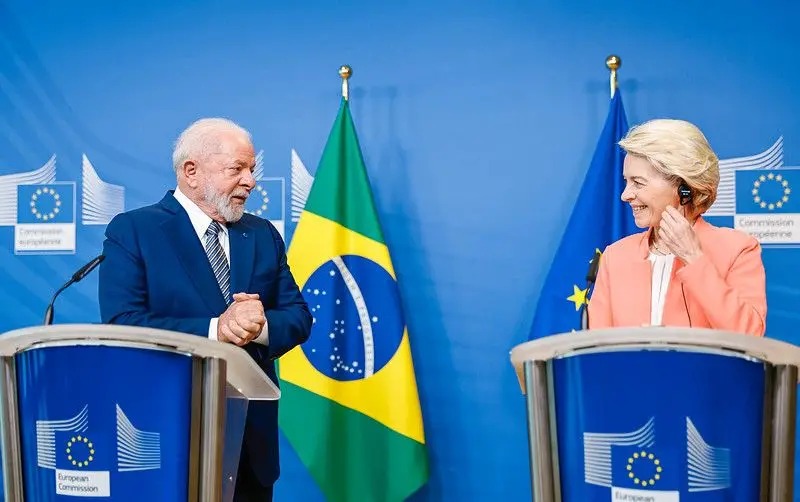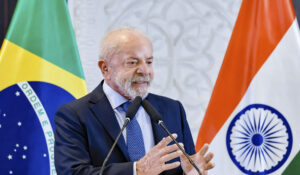
Published 03/04/2025 15:39 | Edited 03/04/2025 16:40
The European Union began dealings to accelerate the trade agreement with Mercosur after the imposition of widespread tariffs by the United States. The measure was pointed out by bloc authorities as an additional pressure factor for Europe to seek new strategic partners amid the worsening global commercial tensions.
US President Donald Trump announced on Wednesday the application of up to 25% tariffs on European products, including automobiles, and a 20% linear surcharge on block exports.
In reaction, the president of the European Commission, Ursula von der Leyen, said that “the consequences will be terrible for millions of people worldwide,” including vulnerable countries that now face higher rates.
“This will be immediately felt. Millions of citizens will face higher supermarket accounts. Drugs will cost more, as well as transportation. Inflation will increase,” he said.
Von der Leyen has announced that Brussels finalizes a first packet of contracted and that others are under study. One of the fronts cited by European authorities is the Furning of pending trade agreementsincluding the Treaty with Mercosur, signed in December 2024 and not yet ratified.
European Council President António Costa defended the acceleration of already signed treaties. The reaction also came from national representatives. France Minister of Economics, Eric Lombard, said the tariffs “accelerate discussions” about the agreement with Mercosur, although he has reiterated that Paris still opposes ratification under current conditions.
“We must find the roads and forms of an agreement. We are missing, to conclude it, a certain number of adjustments, which involve especially the ecological footprint issues in the industrial area, and some issues related to agriculture,” he said.
Alongside Lombard, during an official visit to Paris, last Tuesday (1), the Minister of Finance of Brazil, Fernando Haddad, reinforced the Brazilian interest in the treaty.
“Brazil is enthusiastic about the agreement and President Lula personally led the negotiations,” he said. For Haddad, the partnership goes beyond the economy and represents “an important political response, in the correct direction of preventing the world from returning to a bipolar situation that at this time does not matter to anyone.”
The urgent climate also reached productive sectors. The Chianti Wine Producers Consortium in Italy publicly defended the advance of the agreement with Mercosur following the 20% surcharge imposed by the US on European products.
“This is the time to reinforce our presence in new markets, starting with South America,” said the entity’s president, Giovanni Busi. The Italian Confederation of Farmers has also recommended focus on emerging markets such as Mercosur, India and North Africa, in a logic of diversification.
Despite the pressures, France maintains cautious position. Lombard stated that “conditions today are not posed” for ratification. The theme should be addressed during President Lula’s state visit to France, scheduled for early June.
Source: vermelho.org.br

